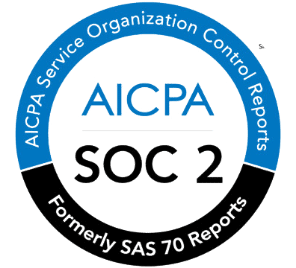Starting your own personal finance firm is an exciting step toward helping clients secure their financial futures.
And while your education and experience may have given you a strong foundation for financial planning, choosing the right tools to help run your new firm can still be overwhelming.
This can particularly be true when it comes to estate planning.
- Many financial planners focus on investment strategies and tax planning, but estate planning is also a critical component of client satisfaction.
- While estate attorneys handle the legal aspects of estate planning, financial planners ensure the estate plan remains aligned with financial goals.
- Good estate planning software makes estate planning more efficient, understandable, and effective for both advisors and clients.
Estate planning is an important part of a client’s overall financial plan, yet not all new financial planners fully understand how to implement it into their practice.
To offer comprehensive financial planning, new advisors need to understand how estate planning software can help streamline this process—turning what might seem complex into a manageable and efficient service for both you and your clients.
Efficiency Meets Value in Financial Planning
Holistiplan bridges the gap between speed and quality, helping advisors like you deliver greater value to every client
Estate Planning 101
Estate planning is the process of organizing, managing, and distributing assets to ensure financial security for loved ones after a person’s passing.
It involves legal and financial strategies designed to protect wealth, minimize taxes, and make inheritance processes efficient.
A well-structured estate plan will ensure the following:
- Assets are transferred smoothly to beneficiaries.
- Estate taxes and legal fees are minimized.
- Wills and trusts outline clear instructions for inheritance.
- Healthcare directives provide guidance for medical decisions in case of incapacitation.
The Role of Estate Planning Documents
While documents are not the only part of a solid estate plan, they play a significant role in ensuring that assets are properly managed, legally protected, and efficiently distributed according to an individual’s wishes.
A strong estate plan typically includes:
- Will – A will defines how assets should be distributed after death, ensuring that beneficiaries receive their intended inheritance according to the individual’s wishes.
- Living Trusts – A legal structure to manage assets, avoid probate, and reduce taxes, offering greater control over how and when assets are distributed, especially for multi-generational wealth planning.
- Durable Power of Attorney – Grants someone authority to make financial decisions if the client becomes incapacitated, preventing disruptions in bill payments, investments, and other financial obligations.
- Health Care Directives – Includes living wills and medical powers of attorney to guide healthcare decisions, ensuring that medical treatments and end-of-life care align with the individual’s preferences.
- Beneficiary Designations – Specifies who will inherit retirement accounts, life insurance policies, and other assets, bypassing probate and allowing beneficiaries to receive funds more quickly and efficiently.
Although some clients may opt to use online will makers to draft wills and other documents, many will choose to work with an estate lawyer to ensure their estate plan is legally sound, tailored to their financial situation, and fully compliant with state and federal laws. For those with more complex estate plans, it is usually best to involve local legal professionals who can offer more customized legal assistance.

The Role of an Estate Planning Attorney
Estate planning law firms specialize in drafting legal documents, ensuring compliance with federal and state laws, and structuring estates to minimize tax liabilities.

Their main responsibilities include:
- Creating wills and trusts to distribute assets.
- Drafting powers of attorney for financial and healthcare decisions.
- Ensuring estate tax planning aligns with legal requirements.
- Handling probate proceedings to facilitate asset transfers.
Once an estate plan is legally created, the estate planning attorney will ensure that all documents are valid, properly filed, and legally enforceable.
The Role of the Financial Planner
Once a client’s estate documents have been drafted, a financial planner’s role in estate planning begins.
From securely storing the documents to keeping beneficiaries updated, a financial planner plays an important role in ensuring an estate plan remains current, legally sound, and aligned with a client’s evolving financial goals.
Here’s how”

A Financial Planner Keeps Estate Plans in Align with Financial Goals:
A financial planner ensures that asset allocations, tax strategies, and retirement planning align with the estate plan. They advise clients on:
- Investment strategies that support long-term estate goals.
- Charitable giving plans that maximize tax benefits.
- Wealth preservation techniques to protect assets for heirs.
A Financial Planner Frequently Reviews Beneficiary Designations:
Financial planners help clients update and optimize beneficiary designations for:
- Retirement accounts (401(k)s, IRAs, pensions).
- Life insurance policies and annuities.
- Bank and brokerage accounts with payable-on-death (POD) designations.
A Financial Planner Monitors and Adjusts an Estate Plan When Needed:
Life events such as marriage, divorce, the birth of a child, or financial growth may require estate plan updates. A financial planner:
- Regularly reviews estate documents with clients.
- Ensures financial changes are reflected in estate planning decisions.
- Collaborates with attorneys and accountants to make necessary legal updates.
It’s clear that a financial planner plays a major role in more than just estate document management.
This is why the right estate planning software is a crucial part of your firm’s operations.
Elevate Your Practice with Holistiplan
Holistiplan is trusted by thousands of advisors to deliver faster, more valuable financial plans. Start your free 7-day trial and see the difference for yourself
Get Started TodayThe Role of Estate Planning Software
Estate planning is a complex, multi-step process that requires precise documentation, financial forecasting, and seamless coordination between financial advisors, estate planners, and attorneys.
Modern estate planning software plays a critical role in streamlining these efforts by automating workflows, enhancing document management, and ensuring efficient asset distribution strategies.
Here are four of the biggest benefits that good estate planning software can offer for your firm and your clients:
#1: It Can Help Streamline the Client Intake Process
One of the key benefits of estate planning software is its ability to make the estate planning process more efficient for everyone involved.
New clients who want to create an estate plan often come in with extensive financial details, including assets, liabilities, existing estate plans, and long-term financial goals.

With good estate and client intake software, financial planners can:
- Collect and organize client data efficiently, reducing paperwork and manual entry.
- Automate initial assessments, generating personalized estate planning recommendations.
- Ensure compliance by pre-filling legal documents based on state regulations.
A well-structured client intake process ensures that estate planners capture all critical financial details, leading to more comprehensive estate planning strategies.
#2: It Allows a Client to Have a Better Understanding of their Total Estate
Estate planning software includes interactive asset diagrams, providing clear and detailed visual representations of a client’s financial portfolio.
These diagrams help financial professionals:
- Map out wealth distribution scenarios to illustrate how assets are allocated to beneficiaries.
- Identify tax-efficient wealth transfer strategies that reduce estate tax liabilities.
- Optimize investment allocations, ensuring long-term estate growth.

By using dynamic asset diagrams, estate planners can present estate plans in a clear and engaging format, making it easier for clients to understand their financial future.
#3: It Gives Access for All Involved
Estate planning involves close collaboration between financial planners and estate attorneys. Estate planning software facilitates seamless attorney access, ensuring legal accuracy and compliance.

Key benefits include:
- Secure cloud-based document sharing, allowing attorneys to review and modify estate plans remotely.
- Role-based access controls, which ensure that sensitive client documents remain confidential.
- E-signature capabilities that enable clients to finalize estate agreements quickly.
By integrating attorney access, estate planning software reduces miscommunication, ensures legal compliance, and enhances the efficiency of estate documentation.
#4: It Keeps Client Documents Safe and Secure
Estate planning software ensures that client documents and client data are protected, accessible, and securely stored for long-term management.
Financial planners rely on these software solutions to:
- Encrypt sensitive estate planning files to prevent unauthorized access.
- Ensure compliance with data privacy regulations, including secure storage of wills, trusts, and financial directives.
- Automate backup and recovery processes that safeguard estate documents against loss.

By prioritizing client data security, estate planning software enables professionals to maintain trust, ensure confidentiality, and deliver seamless estate management services to their clients.
Built by CFP® Professionals,
for CFP® Professionals
Holistiplan was designed by experienced advisors Roger and Kevin to streamline your financial planning process. Achieve more for your clients in less time
Start Your Free 7-Day TrialEstate Planning Solutions Start with Holistiplan
Estate planning is more than just securing assets—it’s about creating a lasting legacy that reflects a client’s values, financial goals, and wishes for their loved ones.
For financial planners, the challenge lies in simplifying the estate planning process while ensuring legal accuracy, tax efficiency, and seamless wealth transfer.
This is where Holistiplan comes in.

As a leading digital estate planning platform, Holistiplan empowers financial planners to develop personalized estate strategies, automate complex calculations, and integrate financial forecasting into estate decisions.
By combining advanced estate planning tools with intuitive financial planning features, Holistiplan streamlines workflows, improves compliance, and ensures that estate plans remain effective as client needs evolve.
Estate planning can be time-consuming and complicated, but Holistiplan removes the guesswork by offering a myriad of tools.
With over 40,000 financial professionals already trusting Holistiplan for estate and tax planning, our platform is changing the way advisors approach legacy-building.
If you’re looking for a smarter way to handle estate planning, Holistiplan is your solution.
Reach out today and see how Holistiplan can help you elevate your estate planning services while giving your clients the confidence and clarity they deserve.





